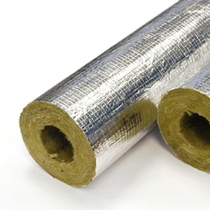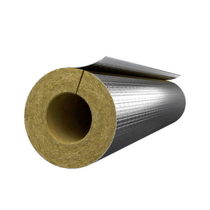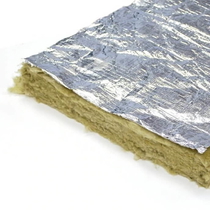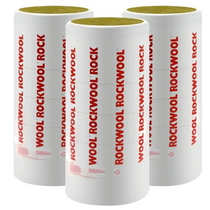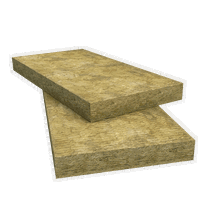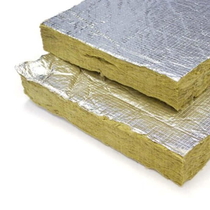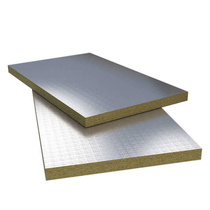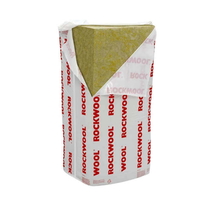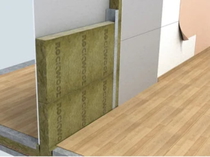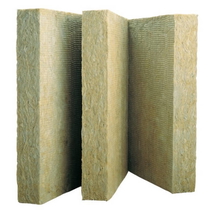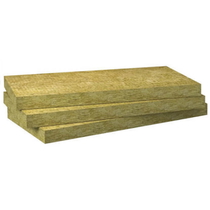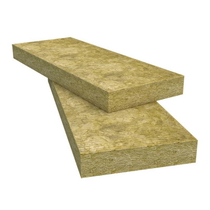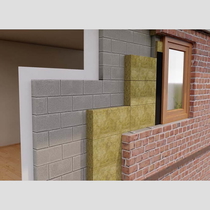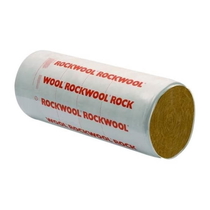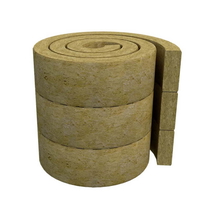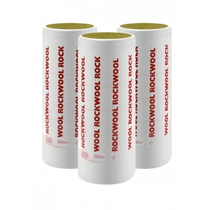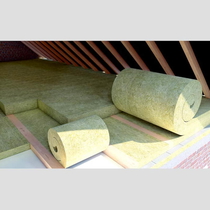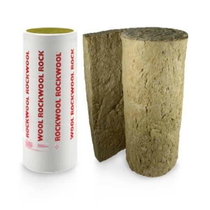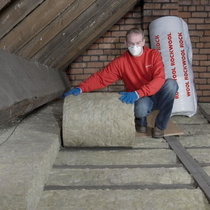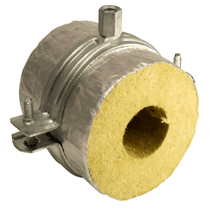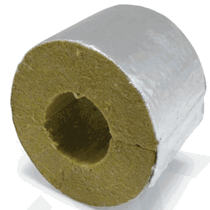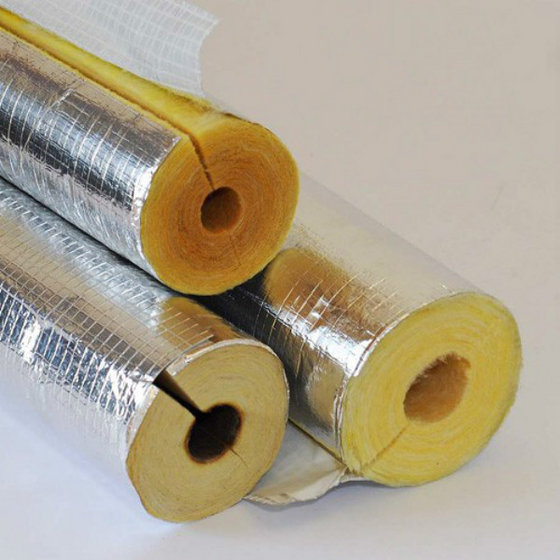Brand: Rockwool
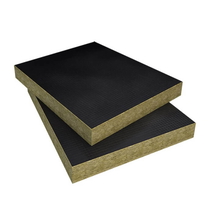

Rockwool FirePro DuctRock - Fire Rated -Duct Insulation Board - 1200 x 1000mm
Why Rockwool Insulation is the Ideal Choice for Thermal Comfort in Homes
History of Rockwool
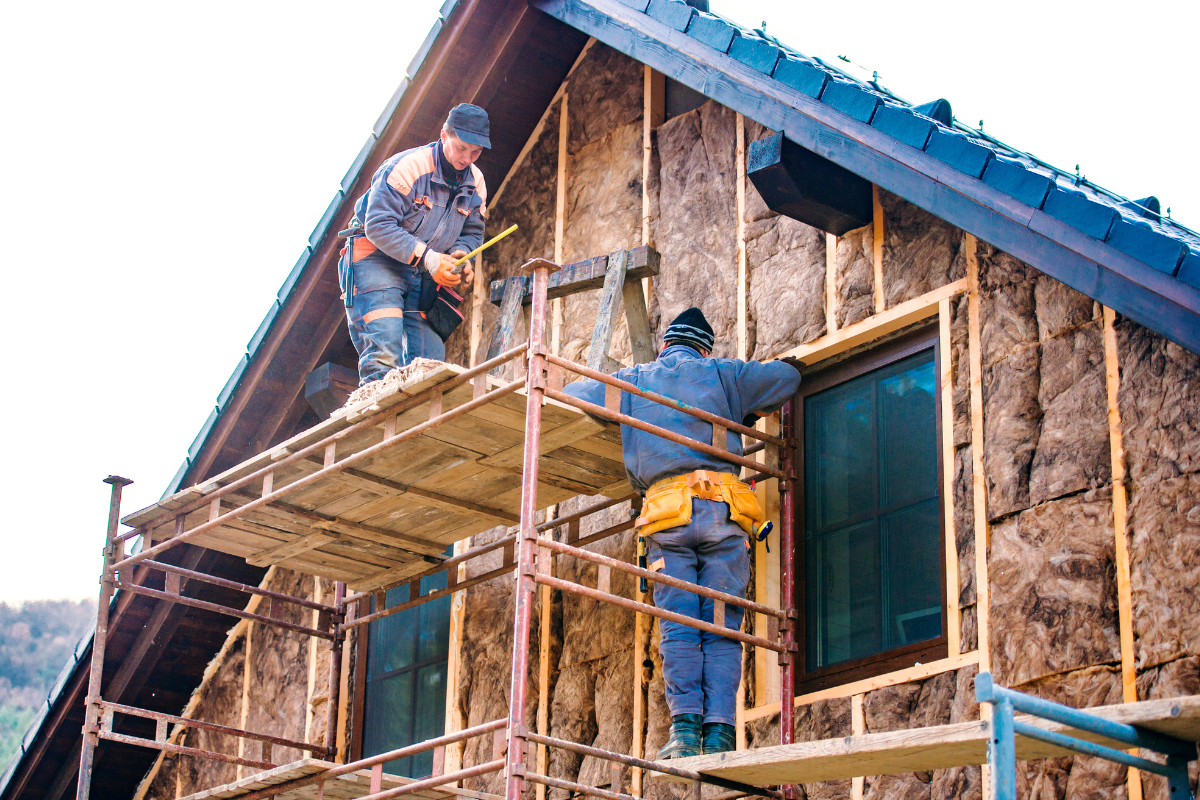 Rockwool, also known as ROCKWOOL Group, is a global leader in stone wool insulation solutions. The company was founded in 1937 in Hedehusene, Denmark, by Henrik Johan Henriksen. The name "Rockwool" comes from the primary material used in its products, which are made from volcanic rocks and natural minerals.
Rockwool, also known as ROCKWOOL Group, is a global leader in stone wool insulation solutions. The company was founded in 1937 in Hedehusene, Denmark, by Henrik Johan Henriksen. The name "Rockwool" comes from the primary material used in its products, which are made from volcanic rocks and natural minerals.
Initially, Rockwool's main focus was on producing insulation materials to meet the growing demand for energy-efficient and fire-resistant building solutions. Over the years, the company expanded its operations and established manufacturing facilities in various countries, becoming a significant player in the global insulation market.
Applications and Markets
Rockwool's stone wool insulation products find applications in various industries and sectors:
-
Building and Construction: Rockwool insulation is widely used in commercial, residential, and industrial buildings to improve thermal efficiency, provide fire protection, and enhance sound insulation. It is used in walls, roofs, floors, and facades.
-
Industrial: The company's industrial insulation solutions are employed in high-temperature processes, such as power generation, petrochemicals, and metallurgy, to conserve energy and ensure safety.
-
Marine and Offshore: Rockwool products are used in marine and offshore applications, including ships and oil rigs, to enhance fire safety and insulation in challenging environments.
-
HVAC (Heating, Ventilation, and Air Conditioning): Rockwool insulation is used in HVAC systems to improve energy efficiency and acoustic performance.
-
OEM (Original Equipment Manufacturer): Rockwool provides insulation solutions for various original equipment manufacturers in different industries.
Rockwool operates in multiple markets worldwide, catering to the construction, industrial, and technical insulation sectors. Its products are sold globally, serving customers in Europe, North America, Asia, and other regions.
Product Range
Rockwool offers a diverse range of insulation products to meet various needs:
-
Rockwool Stone Wool Insulation: This includes thermal insulation products used in buildings and industrial applications. It provides excellent fire resistance, sound absorption, and thermal performance.
-
Rockfon Ceiling Solutions: Rockwool's subsidiary, Rockfon, specializes in high-quality acoustic ceiling solutions for commercial and public buildings.
-
Rockpanel Exterior Cladding: Another subsidiary, Rockpanel, produces durable and attractive facade cladding solutions.
-
SeaRox Marine and Offshore Insulation: This product line offers insulation solutions specifically designed for marine and offshore applications, providing fire protection and thermal efficiency.
-
Technical Insulation: Rockwool provides insulation materials designed for industrial applications, including power plants, petrochemical plants, and more.
-
Rockshield Pipe Insulation: Designed for pipes and fittings, this product range offers thermal and acoustic insulation for various industries.
-
Rockfon Healthcare Ceilings: Specially designed acoustic ceiling solutions for healthcare environments.
-
Rockwool Grodan Horticultural Solutions: This product line includes advanced substrate solutions for horticulture and hydroponics.
Throughout its history, Rockwool has been committed to sustainability, continuously improving its products' environmental impact and promoting energy-efficient building practices. The company remains a leading provider of stone wool insulation solutions worldwide.
Rockwool insulations are versatile and highly effective insulation products that provide thermal and acoustic properties for various applications. Whether it's pipe insulation, duct insulation, or loft insulation, Rockwool offers a range of solutions to meet the specific needs of different construction projects.
Our Range of Rockwool Products
Rockwool Pipe Insulation - Aluminium Foil Faced Pipe Lagging
Rockwool pipe insulation is a type of mineral wool insulation specifically designed to provide thermal and acoustic insulation for pipes. It consists of a layer of Rockwool insulation material wrapped with an aluminum foil facing, which offers additional protection and durability.
The working principle of Rockwool pipe insulation is based on its unique structure and properties. The mineral wool in the insulation roll has a high density, low thermal conductivity, and excellent sound absorption capabilities. This combination allows it to effectively reduce heat loss or gain in the pipes and minimize the transmission of sound, providing energy efficiency and soundproofing benefits.
There are several benefits to using Rockwool pipe insulation. Firstly, its non-combustible nature makes it a safe choice for applications that require fire protection. Additionally, Rockwool pipe insulation is resistant to moisture and can withstand high temperatures, ensuring long-lasting performance and durability. Furthermore, it is easy to install and offers flexibility to accommodate different pipe sizes and shapes.
Rockwool Duct Insulation - Ductwrap
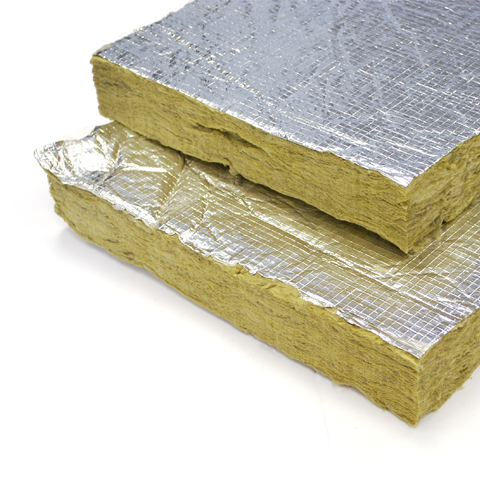
Rockwool duct insulation, also known as ductwrap, is specifically designed to provide thermal and acoustic insulation for HVAC ductwork. It is made from high-density mineral wool insulation slabs, which are wrapped around the ducts to create a layer of insulation.
The installation process for Rockwool duct insulation is straightforward. The insulation slabs are cut to fit the dimensions of the ductwork and then secured in place using metal or adhesive fasteners. The seams and joints are sealed to ensure a continuous insulation barrier.
One of the key advantages of using Rockwool duct insulation is its thermal and acoustic properties. The high-density mineral wool effectively reduces heat transfer through the ducts, improving energy efficiency and reducing heating or cooling costs. Additionally, it absorbs sound vibrations, reducing the transmission of noise between rooms or floors and creating a quieter and more comfortable environment.
Rockwool Duct Insulation - Duct Slab
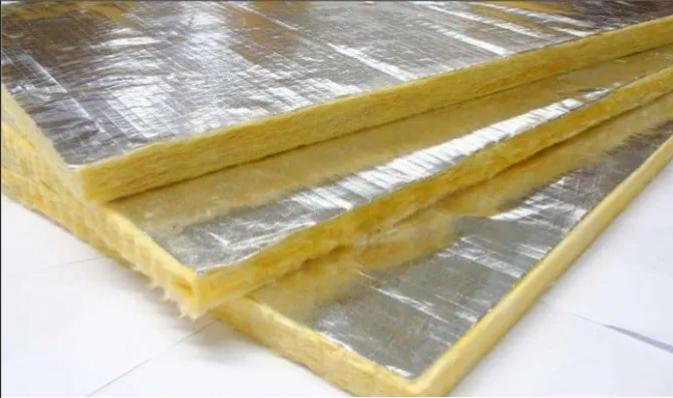
Rockwool duct slabs are a versatile insulation solution used for insulating HVAC ducts. These slabs are made from mineral wool, derived from volcanic slag, which is then processed to create insulation material with excellent thermal and acoustic properties.
Rockwool duct slabs can be used in various ways for insulation. They can be cut and fitted around the ductwork, providing a complete and continuous insulation barrier. The slabs can also be used to create a double-layered insulation system, further enhancing thermal and acoustic performance.
Some of the key features of Rockwool duct slabs include their high density, which provides excellent thermal insulation, and their non-combustible nature, which ensures fire safety. They also have a low thermal conductivity, reducing heat transfer and improving energy efficiency. Moreover, Rockwool duct slabs are easy to handle and install, making them a popular choice for HVAC insulation projects.
Rockwool RWA45 Mineral Wool Thermal And Acoustic Insulation Slab
Rockwool RWA45 insulation slab is a high-performance solution designed to provide both thermal and acoustic insulation for various applications. It is made from mineral wool, which is manufactured by melting volcanic rock and spinning it into fibers.
The Rockwool RWA45 insulation slab is used in different settings to improve energy efficiency and create a comfortable indoor environment. It is commonly used in walls, floors, and roofs to enhance thermal insulation and reduce heat loss or gain. Additionally, it effectively absorbs sound, reducing noise transmission and improving acoustic comfort.
The applications of Rockwool RWA45 insulation slab are diverse. It is ideal for both residential and commercial buildings, providing effective insulation for homes, offices, schools, and hospitals. It is also suitable for industrial applications that require thermal and acoustic insulation to create a controlled environment.
Rockwool Full Fill - Cavity Batt Insulation
Rockwool full fill cavity batt insulation is designed to provide thermal insulation for cavity walls. Cavity walls consist of two layers of masonry with a gap (cavity) in between. The Rockwool full fill cavity batt insulation is placed within this gap to create an effective thermal barrier.
The installation of Rockwool full fill cavity batt insulation is relatively simple. The insulation batts, which are available in different widths and thicknesses, are friction-fitted into the cavity. Special care is taken to ensure a continuous insulation layer without any gaps or voids.
There are several advantages to using Rockwool full fill cavity batt insulation. Firstly, it improves the thermal performance of the building, reducing heat loss or gain through the walls and improving energy efficiency. Secondly, it provides excellent fire protection, as Rockwool is non-combustible and can resist high temperatures. Additionally, Rockwool full fill cavity batt insulation has good acoustic properties, reducing noise transmission between rooms.
Rockwool Loft Insulation
Rockwool loft insulation is designed to provide thermal insulation for loft spaces. It helps to prevent heat loss through the roof and improves energy efficiency in the building. Rockwool loft insulation is available in different forms, including rolls, slabs, and loose-fill.
The installation of Rockwool loft insulation depends on the type of product used. Rolls and slabs are typically laid between the joists, while loose-fill insulation is blown into the cavity using special equipment. Care should be taken to ensure a complete and continuous insulation layer without any gaps or voids.
Rockwool loft insulation offers several benefits. Firstly, it reduces heat loss, keeping the building warm during cold weather and reducing heating costs. Secondly, it helps to regulate indoor temperatures, keeping the building cool during hot weather. Additionally, Rockwool loft insulation is non-combustible, provides fire protection, and has excellent sound-absorbing properties, reducing noise transmission between floors.
Rockwool Flexi Mineral Wool Acoustic and Thermal Insulation Slab
Rockwool Flexi acoustic and thermal insulation slab is a versatile insulation product used for soundproofing and thermal insulation. It is made from mineral wool, which is processed and manufactured into slabs with varying thicknesses.
Rockwool Flexi insulation is commonly used in applications that require soundproofing, such as recording studios, theaters, and cinemas. Its unique structure and high-density properties absorb sound vibrations, reducing noise transmission and creating a quieter environment. Additionally, it provides excellent thermal insulation, reducing heat transfer and improving energy efficiency.
The benefits of Rockwool Flexi insulation slab are numerous. It is flexible, making it easy to install in various spaces and surfaces. It is also non-combustible, ensuring fire safety, and has a long lifespan, providing lasting performance. Moreover, Rockwool Flexi insulation is resistant to moisture and does not promote the growth of mold or mildew.
Rockwool Rainscreen Duo - Thermal and Acoustic Insulation Slab
Rockwool Rainscreen Duo insulation slab is specifically designed for thermal and acoustic insulation in building facades. It is made from mineral wool, which is processed and manufactured to provide optimal performance in exterior insulation systems.
Rockwool Rainscreen Duo insulation slab is used in conjunction with a rainscreen cladding system to enhance the thermal efficiency and acoustic comfort of the building. It is installed behind the cladding, creating a continuous insulation layer that reduces heat transfer and sound transmission.
The key features of the Rockwool Rainscreen Duo insulation slab include its high-density nature, which provides excellent thermal insulation capabilities, and its non-combustible properties, ensuring fire safety. It also has good water repellency, preventing moisture absorption and maintaining its insulation performance. Additionally, it is designed to withstand external environmental factors, such as wind, rain, and UV exposure.
Rockwool Stone Wool Fire Barrier
Rockwool stone wool fire barriers are specifically designed to provide fire protection in various building applications. They are made from mineral wool, which is derived from volcanic rock and processed to create a high-density insulation material.
Rockwool stone wool fire barriers work by creating a barrier against the spread of fire and smoke. When exposed to high temperatures, Rockwool stone wool insulation releases water vapor, helping to cool the surrounding area and prevent the spread of flames. Additionally, its high-density structure acts as a physical barrier, reducing the passage of smoke and flames.
Rockwool stone wool fire barriers can be used in a variety of applications, including walls, floors, ceilings, and service penetrations. They are commonly used in commercial buildings, hospitals, schools, and industrial facilities where fire safety is a critical consideration.
Conclusion
Rockwool insulations offer a wide range of benefits for various construction applications. Whether it's pipe insulation, duct insulation, or loft insulation, Rockwool insulation provides excellent thermal and acoustic insulation properties. Here are some key benefits of Rockwool insulation:
1. Energy efficiency: Rockwool insulation has a high thermal resistance, helping to reduce heat loss and save energy in a building. It can significantly improve the energy efficiency of heating and cooling systems by reducing the need for excessive heating or cooling.
2. Fire resistance: Rockwool insulation is non-combustible and can withstand high temperatures without melting or releasing toxic fumes. It acts as a fire barrier, providing valuable time for occupants to evacuate a building in case of a fire.
3. Noise reduction: Rockwool insulation has excellent sound-absorbing properties, making it effective in reducing noise transmission between rooms or from external sources. It enhances acoustic comfort by minimizing the impact of noise on occupants.
4. Moisture resistance: Rockwool insulation is water-repellent and prevents the passage of moisture. This helps to prevent mold, mildew, and decay in buildings, ensuring a healthier and more durable indoor environment.
5. Durability: Rockwool insulation is structurally stable, retaining its physical properties for the life of the building. It does not sag or settle over time, maintaining its insulating effectiveness.
6. Sustainable choice: Rockwool insulation is made from natural and abundant materials, such as volcanic rock and recycled steel slag. It is fully recyclable at the end of its life, reducing environmental impact.
7. Ease of installation: Rockwool insulation is lightweight and easy to handle, making it convenient for installation in various construction applications. It can be cut to fit around pipes, ducts, and other irregular shapes, ensuring a seamless installation.
Overall, Rockwool insulation offers a range of benefits including energy efficiency, fire resistance, noise reduction, moisture resistance, durability, sustainability, and ease of installation. It is a versatile and effective insulation solution for a wide range of construction projects.
Q: What is rockwool insulation?
A: Rockwool insulation is a type of thermal mineral wool insulation made from stone and other natural materials. It is commonly used to enhance energy efficiency in buildings by providing excellent thermal insulation.
Q: How does rockwool insulation enhance energy efficiency?
A: Rockwool insulation is known for its excellent thermal performance. It helps to retain heat and prevent heat transfer between the inside and outside of a building. By reducing heat loss or gain, rockwool insulation can significantly reduce energy consumption and improve energy efficiency.
Q: What are the benefits of rockwool insulation?
A: Rockwool insulation offers several benefits. It provides excellent thermal insulation, sound insulation, and fire resistance. It is also non-combustible, inorganic, and resistant to mold and mildew. Additionally, rockwool insulation is easy to install and can be used in various applications, including roofs, walls, and pipes.
Q: Can rockwool insulation be used for sound insulation?
A: Yes, rockwool insulation is known for its superior sound insulation properties. It effectively reduces noise transmission from outside or between rooms, making it ideal for soundproofing applications.
Q: What is the delivery process for rockwool insulation?
A: The delivery process for rockwool insulation may vary depending on the supplier. However, most suppliers offer convenient delivery options to ensure that the insulation reaches the customer's location safely and on time. It is best to check with the supplier for specific delivery details.
Q: Can I find external links to more information about rockwool insulation?
A: Yes, you can find external links to more information about rockwool insulation on reputable websites and industry publications. These resources can provide in-depth information about the benefits, installation process, and best practices for using rockwool insulation.
Q: What is the recommended thickness for rockwool insulation?
A: The recommended thickness of rockwool insulation depends on the specific application and desired level of thermal or sound insulation. However, common thickness options range from 50mm to 100mm, with thicker insulation providing higher insulation values.
Q: Is rockwool insulation similar to glass wool insulation?
A: Rockwool insulation and glass wool insulation are both types of mineral wool insulation. While they have similar properties, such as thermal and sound insulation, they are manufactured using different materials. Rockwool insulation uses stone and other natural materials, while glass wool insulation is made from recycled glass.
Q: Are there any discounts available for rockwool insulation?
A: Some suppliers may offer discounts or promotional offers for rockwool insulation. It is recommended to inquire with different suppliers and compare prices to find the best deal. Additionally, some suppliers may offer bulk discounts for larger orders.
Q: Who are the leaders in rockwool insulation?
A: Rockwool insulation is widely recognized and used by leading manufacturers and suppliers in the insulation industry. These companies have a reputation for producing high-quality rockwool insulation products that meet industry standards and provide excellent performance.
